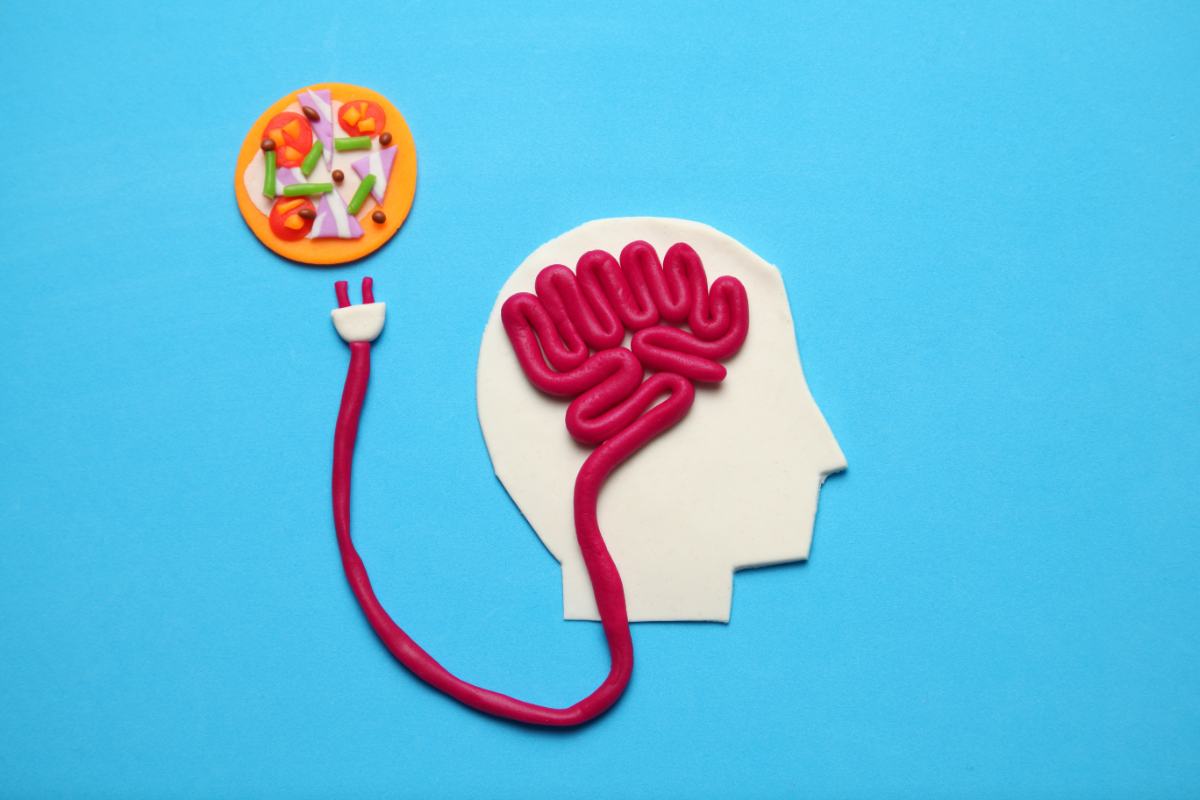Have you ever had the feeling of having butterflies in your stomach? If so, then you now understand that there is a link between the stomach and the head. Let’s take a closer look!
The impact of the stomach on mental health
There is indeed a link between mental health problems and gut dysbiosis. In addition, new research suggests that the gut microbiota plays a key role in brain development and the flow of information within the brain nervous system. Hence the negative impact of poor gut health on the mind: Migraine epilepsy, anxiety, depression … . It turns out that our sensitivity to stress is largely impacted by the gut-brain axis. Various studies have also shown that changes in the intestinal microbiota at the beginning of life (antibiotics, artificial milk, Caesarean section, family stress, etc.) can alter stress-related behaviour in the long term.
Substances released by the intestinal microbiota
The microbes that live in our gut produce chemicals that influence the functioning of the brain. When they digest fibres when they digest, they start to produce short-chain fatty acids or SCFAs: among them are propionate, acetate and butyrate (available in Permeabiane from Pileje laboratories ). These SCFAs themselves affect brain function and in particular by reducing the appetite. As for bile acids, they are chemical substances produced by the liver which participate in the absorption of dietary fats. However, they can also have an influence on the brain. In fact, research has shown that these same acids have the ability to escape from the digestive tract, to accumulate temporarily in the bloodstream and thus make a brief passage to the hypothalamus after a meal in order to stop food intake.
The value of probiotics
The bacteria in the intestines have a real influence on brain health. So much so that a change in the microbiota can improve mental health. Probiotics are living bacteria that have health benefits. Hence the importance of consuming them in the form of food supplements on a daily basis! In addition, studies have shown that certain strains of probiotics strains can improve the symptoms of depression, stress and anxiety, particularly in the context of irritable bowel.
Which foods are beneficial for the gut-brain axis?
There are groups of foods that are beneficial to the ‘gut-brain axis’:
Omega 3:
These are fats that are essential to the balance of the body and are present in oily fish but also in large quantities in the human brain. Studies have shown that omega 3 studies have shown that omega-3 fatty acids can increase the level of good bacteria in the gut and thus reduce the risk of brain disorders.
Fermented foods:
Sauerkraut, Kefir, Kombucha, yoghurt and cheese are all rich in microbes that are beneficial to our brain health.
Fibre-rich foods:
Whole grains, oilseeds, fruits and vegetables all contain prebiotic fibres that are beneficial to the intestinal microbiota. Indeed, research suggests that probiotics may reduce the stress hormone in people with anxiety.
Foods rich in polyphenols:
Olive oil, coffee, cocoa and green tea all contain polyphenols. In fact, these are plant chemicals digested by intestinal bacteria. According to science, they are capable of increasing the number of ‘good’ intestinal bacteria, which has a positive influence on cognitive functions.
Sources :
https://www.ncbi.nlm.nih.gov/pmc/articles/PMC4367209/#:~:text=The%20gut%2Dbrain%20axis%20(GBA,microbiota%20in%20influencing%20these%20interactions.
https://www.ncbi.nlm.nih.gov/pmc/articles/PMC6469458/
https://www.ncbi.nlm.nih.gov/pmc/articles/PMC4362231/





